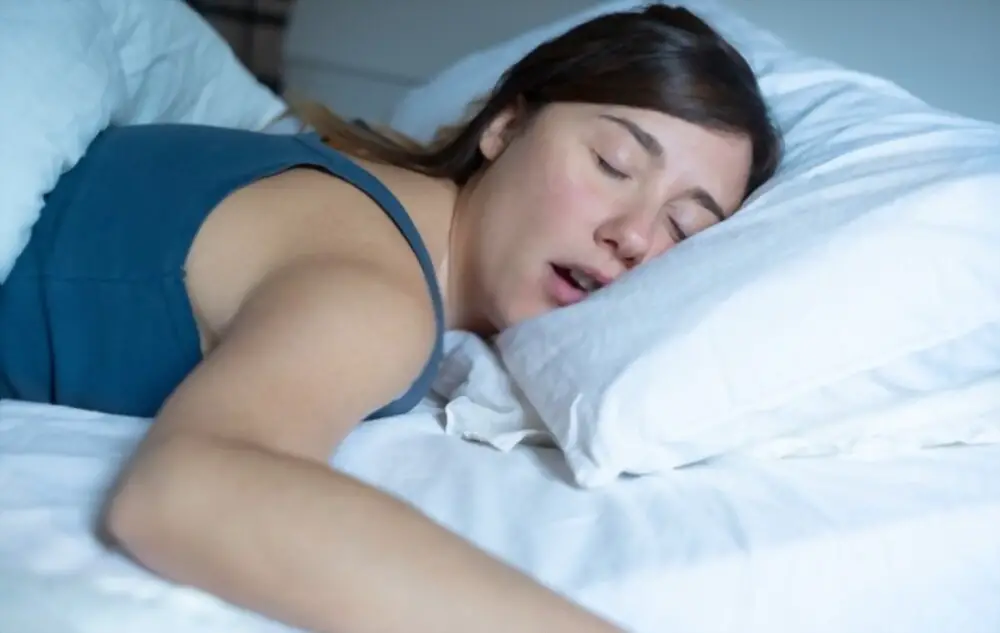Do you know what the signs of sleep apnea are? Probably not, as few people even know what sleep apnea is.
If you’ve seen any of the signs mentioned here, you probably just mistook at as insomnia, restlessness, or snoring.
The truth is that sleep apnea can be a serious problem, one that can cause long-term harm to your body if you don’t take care of the problem immediately.
Realizing that your sleeping issues are actually signs of sleep apnea is a good first step, and you’ll be able to get the help you need to sleep better at night.
Signs of Sleep Apnea: What is Sleep Apnea?
Sleep apnea is a condition involving involuntary pauses in your breathing during the night. How does this happen?
To understand sleep apnea, you just need to understand how your breathing works – a pretty simple thing.
You breathe in via your mouth or nose, and the air passes down your throat, into your airways, and finally to your lungs. The oxygen is absorbed, carbon dioxide replaces it, and you expel the air through your mouth or nose. Simple, right?
Sleep apnea is the name given to regular involuntary pauses in your breathing. The flow of air is stopped through the night, and you wake up to start breathing again.
There are three types of apnea:
Central Sleep Apnea –With this type of sleep apnea, your brain doesn’t send signals to your lungs and respiratory muscles to breathe, so the muscles don’t contract and expand to inhale and exhale.
Obstructive Sleep Apnea –This is the most common type, and it involves something blocking your windpipes, thus preventing the air from passing to and from your lungs.
Mixed Sleep Apnea – This is a combination of both types of sleep apnea.
So, now you know what sleep apnea is, but do you know what the signs of sleep apnea are?
Signs of Sleep Apnea
Here is how you can tell that you have sleep apnea:
You tend to gasp for air at night
You’ll find that sleep apnea is usually characterized by an obstruction of your breathing, so you end up going without oxygen until you wake up and make sure to breathe.
This lack of oxygen causes you to gasp for air, and you’ll find that these gasps, chokes, or snores usually follow pauses in your intake of air.
Some people experience frenzied gasps every few seconds, and it may be hard for them to sleep because they’re constantly waking up gasping for breath.
Snoring is an issue
Snoring is a problem that many people have, but most of them don’t realize that it’s actually one of the signs of sleep apnea.
You can snore without having sleep apnea, but most snorers run a high risk of developing the sleeping problem.
Usually, your spouse or partner will be able to tell that you’re snoring more loudly than normal, as your lungs are working harder to inhale and exhale.
If your snoring is bad enough to keep your spouse awake – and it happens every night – it may be one of the signs of sleep apnea. It’s time to get help for snoring if it gets too bad.
Your blood pressure is high
High blood pressure can be a sign of a lot of different health problems, including just high blood pressure.
It doesn’t necessarily have to mean that you have sleep apnea, but combining hypertension with a few of the other signs of sleep apnea on this list may indicate a serious problem.
When you can’t breathe, your body tends to produce adrenaline – the “fight or flight” response to a lack of oxygen.
This will happen all night long, and you’ll end up feeling exhausted the next day thanks to the increase and decrease in adrenaline levels.
You’re exhausted in the morning
Unless you are an insomniac, you have no reason to be exhausted after a solid 7 or 8-hour block of sleep.
Sleep apnea is one of the things that can cause you to wake up during the night, so you never make it all the way to deep sleep.
If you are always tired during the day, it probably means that you didn’t sleep well at night. Daytime sleepiness is another of the signs of sleep apnea – so it’s time to get yourself to a sleep clinic.
You’re heavier than you should be
Interestingly enough, our bodies interpret being tired as being hungry, so you end up eating more than you should when all you need is a good nap.
More than two-thirds of people diagnosed with sleep apnea are overweight, and being overweight just makes the sleeping problem worse.
The fat on your neck presses down on the airways, causing the obstruction that is stopping you from breathing.
You pee a lot at night
Nocturia is the fancy name given to the need to get up and pee during the night, and it’s a problem that affects a lot of people.
It may be linked to aging, but it’s one of the signs of sleep apnea you need to keep an eye out for.
When you can’t breathe, the fight or flight response in your body actually causes you to feel like your bladder is full – hence the need to pee.
You suffer from random pains
Many people with sleep apnea wake up with dry mouths, which can often lead to sore throats. Headaches are common in the morning among those with sleep apnea, and they’re caused by the lack of oxygen starving the brain.
This oxygen deprivation can also lead to mood swings, forgetfulness, and even changes in your sex drive.
Wow, that’s a lot of things letting you know that you’ve got problems sleeping! If you notice these signs of sleep apnea, get help as soon as you can before it gets worse!

